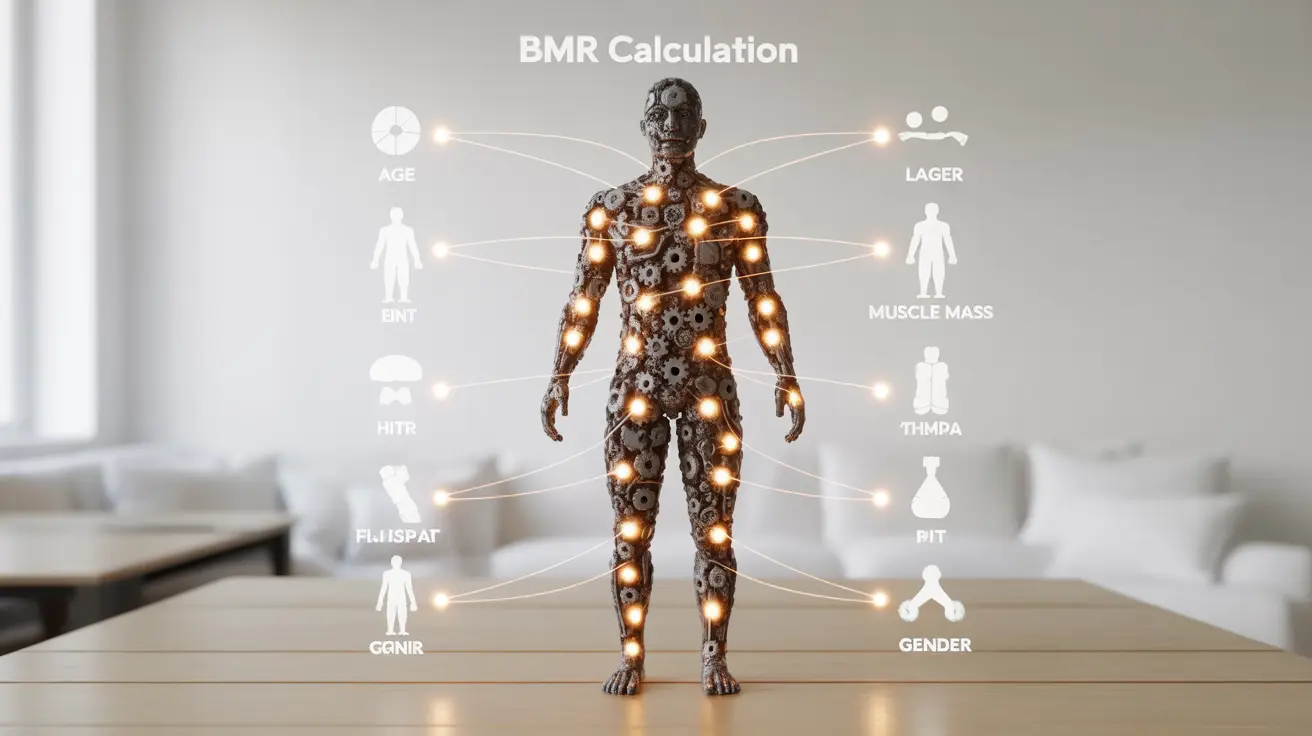Your basal metabolic rate (BMR) plays a crucial role in understanding your body's daily energy requirements and managing your weight effectively. This fundamental measurement represents the minimum amount of energy your body needs to perform essential life-sustaining functions while at complete rest.
In this comprehensive guide, we'll explore what BMR means for your health, how to calculate it accurately, and ways to optimize your metabolic rate for better health outcomes.
What is Basal Metabolic Rate?
Basal metabolic rate represents the number of calories your body burns to maintain vital functions like breathing, circulating blood, regulating body temperature, and supporting organ function while at complete rest. This baseline energy expenditure accounts for approximately 60-75% of your total daily caloric needs.
Calculating Your BMR
The Harris-Benedict formula is the most widely used method for calculating BMR. This equation takes into account several key factors:
For Men:
BMR = 66.47 + (13.75 × weight in kg) + (5.003 × height in cm) - (6.755 × age in years)
For Women:
BMR = 655.1 + (9.563 × weight in kg) + (1.850 × height in cm) - (4.676 × age in years)
Key Factors Affecting BMR
Several factors influence your basal metabolic rate:
- Age: BMR typically decreases with age
- Body composition: Higher muscle mass increases BMR
- Gender: Men generally have a higher BMR than women
- Genetics: Family history can affect metabolic rate
- Hormonal factors: Thyroid function and other hormones impact BMR
BMR vs. RMR: Understanding the Difference
While often used interchangeably, basal metabolic rate (BMR) and resting metabolic rate (RMR) are slightly different measurements. BMR is measured under more stringent conditions, requiring complete rest after 8 hours of sleep and 12 hours of fasting. RMR can be measured under less restrictive conditions and is typically slightly higher than BMR.
Optimizing Your BMR Naturally
There are several evidence-based strategies to enhance your BMR:
Building Muscle Mass
Strength training and resistance exercises help build lean muscle tissue, which requires more energy to maintain than fat tissue, thereby increasing your BMR.
Regular Physical Activity
Consistent exercise not only burns calories during the activity but can also temporarily boost your BMR for several hours afterward through the "afterburn effect."
Proper Nutrition
Eating regular, balanced meals and maintaining adequate protein intake supports muscle maintenance and healthy metabolic function.
Frequently Asked Questions
What is basal metabolic rate (BMR) and why is it important for weight management?
BMR is the number of calories your body burns at rest to maintain basic life functions. It's crucial for weight management because it helps determine your total daily caloric needs, allowing you to create appropriate eating and exercise plans to achieve your weight goals.
How do you calculate your basal metabolic rate (BMR) using the Harris-Benedict formula?
The Harris-Benedict formula calculates BMR using your weight, height, age, and gender. The formula differs for men and women, incorporating these variables to provide an estimate of your basic caloric needs.
What factors influence a person's basal metabolic rate (BMR)?
BMR is influenced by multiple factors including age, gender, body composition, genetics, hormonal status, and overall health. Muscle mass, temperature, and certain medical conditions can also affect your BMR.
What is the difference between basal metabolic rate (BMR) and resting metabolic rate (RMR)?
BMR is measured under strict conditions requiring complete rest after sleep and fasting, while RMR can be measured under less restrictive conditions. RMR is typically slightly higher than BMR but both measurements help determine basic energy needs.
How can I increase my basal metabolic rate (BMR) naturally through lifestyle changes?
You can increase your BMR naturally by building muscle through strength training, maintaining regular physical activity, eating adequate protein, getting proper sleep, and staying hydrated. Consistency in these lifestyle habits is key for long-term metabolic health.




